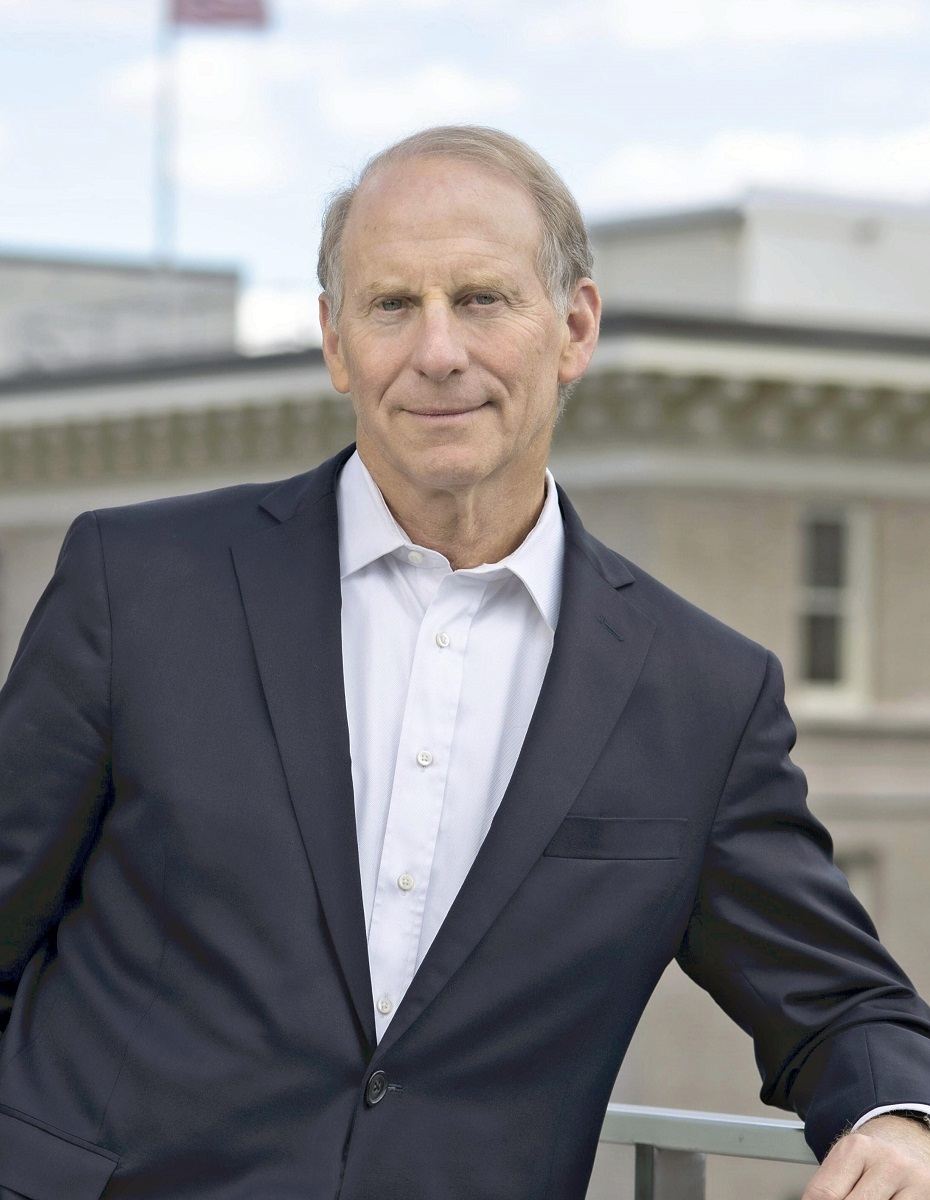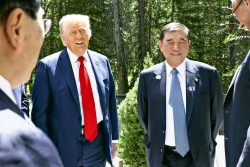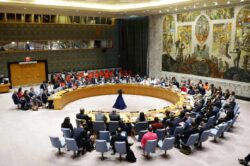
Richard Haass
18:15 JST, May 12, 2023
Ahead of the Group of Seven summit that will start in Hiroshima on May 19, The Yomiuri Shimbun has asked key figures and former government officials from participating countries and invited countries for their views on focal issues of the upcoming summit.
The following is excerpted from an interview with Richard Haass, president of the Council on Foreign Relations, a leading U.S. think tank.
***
The G7 summit is an opportunity for major strategic and economic and diplomatic partners to share ideas and coordinate strategy. To me, that’s the most important thing that they will come out of this with, hopefully, improved policy and with a degree of commonality. What matters most is at the end of this, the leaders are pretty much on the same page. And then if that’s the case, then consensus or agreements reached at the G7 can affect national policies or find their way into other frameworks.
[Regarding Russia’s invasion of Ukraine], it’s important that the G7 express its commitment to the basic principle of international order, that territory cannot be acquired by force, that sovereignty needs to be respected. Obviously, [Russian President Vladimir] Putin hopes that fatigue is setting in among the Western countries. And it’s important to disabuse him of that. I also think it would be useful if the G7 had discussions in addition about what the options are, later this year, just say, after another six months of support for Ukraine and fighting the battlefield that pretty much looks the way it does [now]. I believe that the G7 needs to have a private but honest conversation about a longer-term approach that doesn’t compromise any principles but takes into account certain realities.
China obviously has a special relationship with Russia. I believe that the G7 should be open to approaching China about whether it is prepared — it issued their statement about principles for peace. What matters more is whether China is willing to put principles into practice, to have energetic diplomacy and to use its influence with Russia in a constructive way. I think we ought to test that.
What’s most crucial to deter China is what the United States, Japan, Taiwan, Australia and South Korea do. That is the most important cause and that’s because of capacity and because of geography. Right now, I worry that the economic dependence of these countries is so great that in a crisis, China might have more leverage than we do. So we need to selectively limit our economic dependence on China because of the crisis.
China needs to understand that if it were to use force in any way against Taiwan, that it would mean not simply a response from the United States and its Indo-Pacific partners, but also from Europe. We need European participation in sanctions. Europe has an important role. It’s difficult, because right now the Europeans have done quite extraordinary things when it comes to reducing their economic relationship with Russia. A lot of them are not wildly enthusiastic about also doing a similar thing with China. So this will not be easy, but it is important.
Kishida’s initiative ‘admirable’
I believe that Prime Minister [Fumio] Kishida is undertaking a historic foreign policy, a historic national security policy. I would highlight two things. One is the evolving, constructive relationship with South Korea. These are difficult, controversial issues and the fact that Prime Minister Kishida and President Yoon [Suk Yeol] have taken these steps, and now we see follow-up steps that are happening. This is really admirable. Secondly, what I see Prime Minister Kishida doing is continuing to make it possible for Japan to take on a larger role in the region in the world. It’s a role that is commensurate with Japan’s resources, its importance. And he’s building domestic support for it and he’s building considerable regional and international acceptance of it.
This meeting is taking place at a time where we have two enormous buildups of nuclear arsenals, one in China, and the other in North Korea. You have Russia, essentially both threatening to use nuclear weapons plus Russia’s conventional forces have been shown to be much weaker than was thought, which I expect will only increase Russia’s dependence upon nuclear weapons.
I think we’re going to have a moment in history where we could be entering an extremely dangerous nuclear age. We’ve actually reached in some ways, the most worrisome moment in the nuclear era since probably the Cuban missile crisis [in 1962].
I think the timing is very good [to have the G7 in Hiroshima]. I understand the immediate focus will be on Ukraine and China. But the backdrop should be some meaningful time spent discussing this set of nuclear challenges.
— This interview was conducted by Hiroshi Tajima, a Yomiuri Shimbun correspondent based in Washington.
Richard Haass, 71
Haass is the president of the Council on Foreign Relations, a U.S. think tank that publishes “Foreign Affairs,” a leading magazine on U.S. foreign policy. He previously served in such positions as special assistant to U.S. President George H.W. Bush and director of policy planning for the U.S. State Department under the administration of President George W. Bush.
Top Articles in Politics
-

Japan PM Takaichi’s Cabinet Resigns en Masse
-

Sanae Takaichi Elected Prime Minister of Japan; Keeps All Cabinet Appointees from Previous Term
-

Japan’s Govt to Submit Road Map for Growth Strategy in March, PM Takaichi to Announce in Upcoming Policy Speech
-

LDP Wins Historic Landslide Victory
-

LDP Wins Landslide Victory, Secures Single-party Majority; Ruling Coalition with JIP Poised to Secure Over 300 seats (UPDATE 1)
JN ACCESS RANKING
-

Japan PM Takaichi’s Cabinet Resigns en Masse
-

Japan Institute to Use Domestic Commercial Optical Lattice Clock to Set Japan Standard Time
-

Israeli Ambassador to Japan Speaks about Japan’s Role in the Reconstruction of Gaza
-

Man Infected with Measles Reportedly Dined at Restaurant in Tokyo Station
-

Videos Plagiarized, Reposted with False Subtitles Claiming ‘Ryukyu Belongs to China’; Anti-China False Information Also Posted in Japan
























